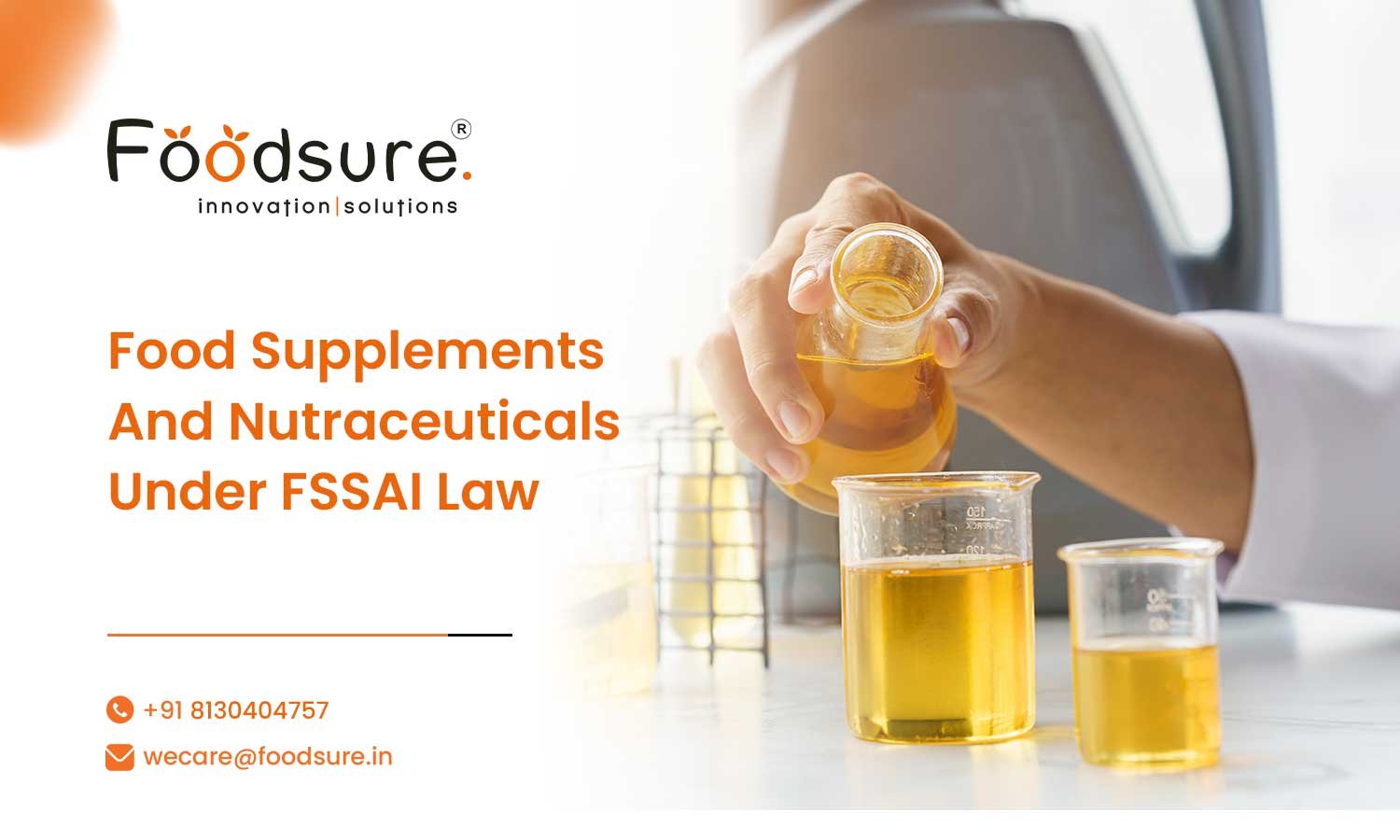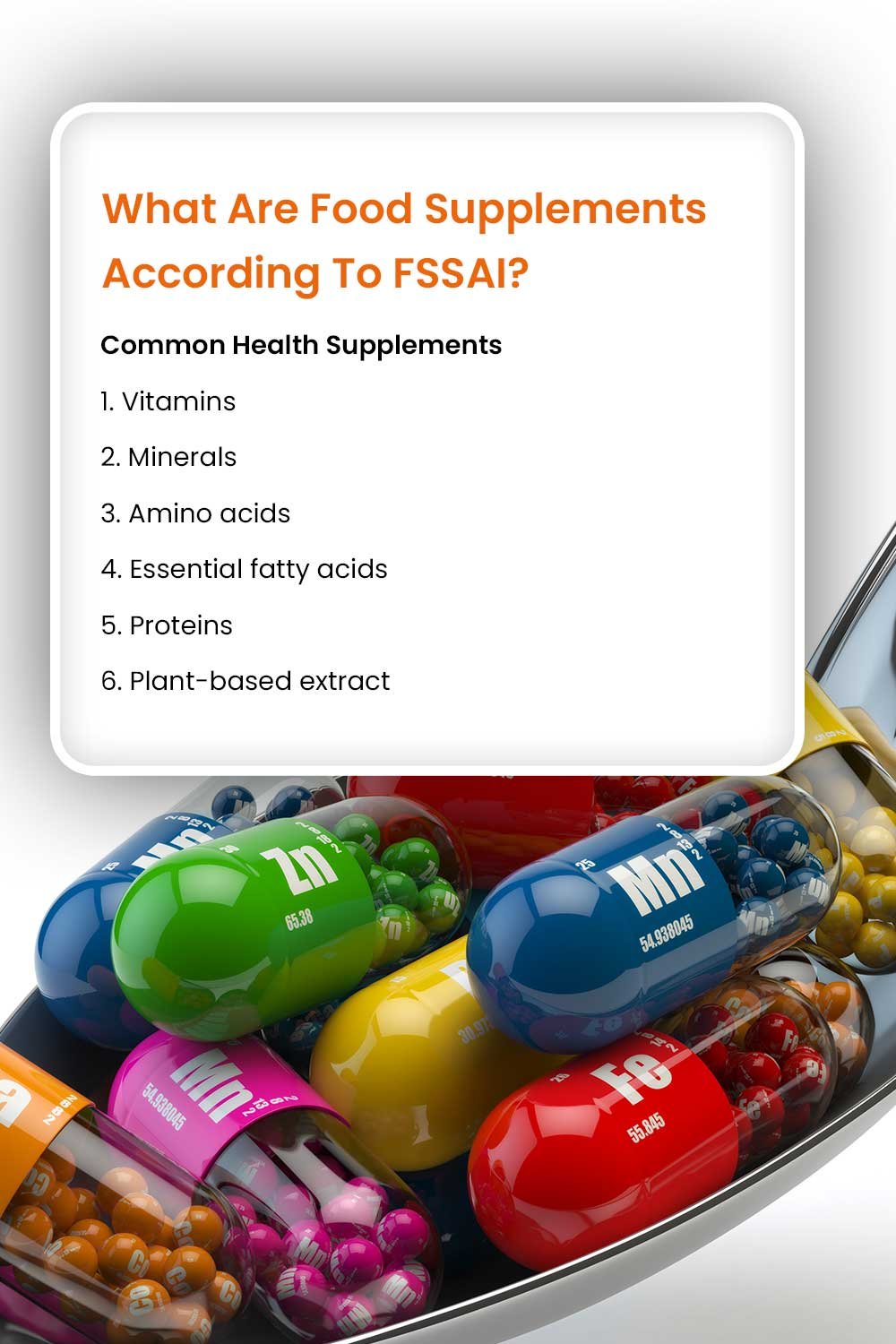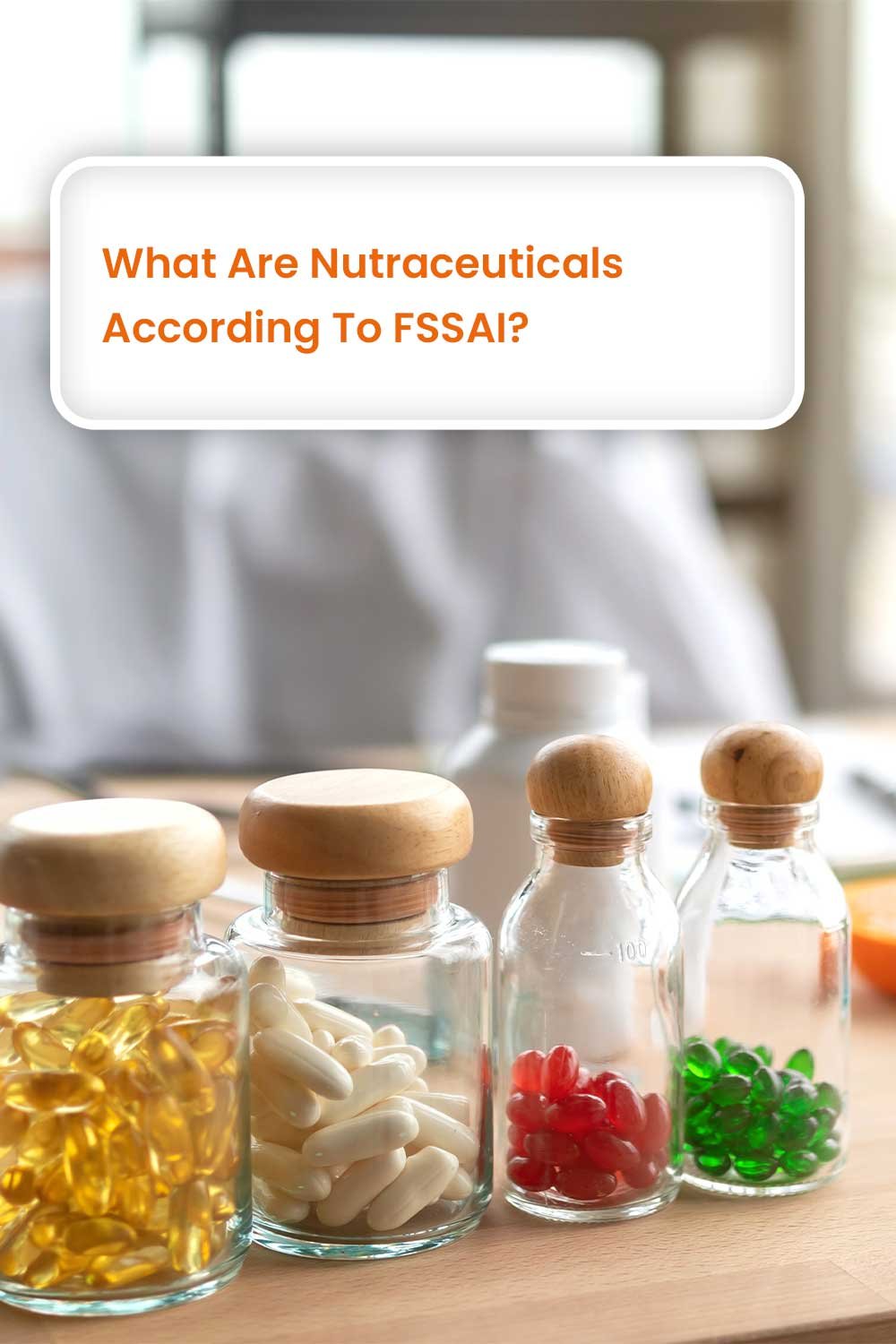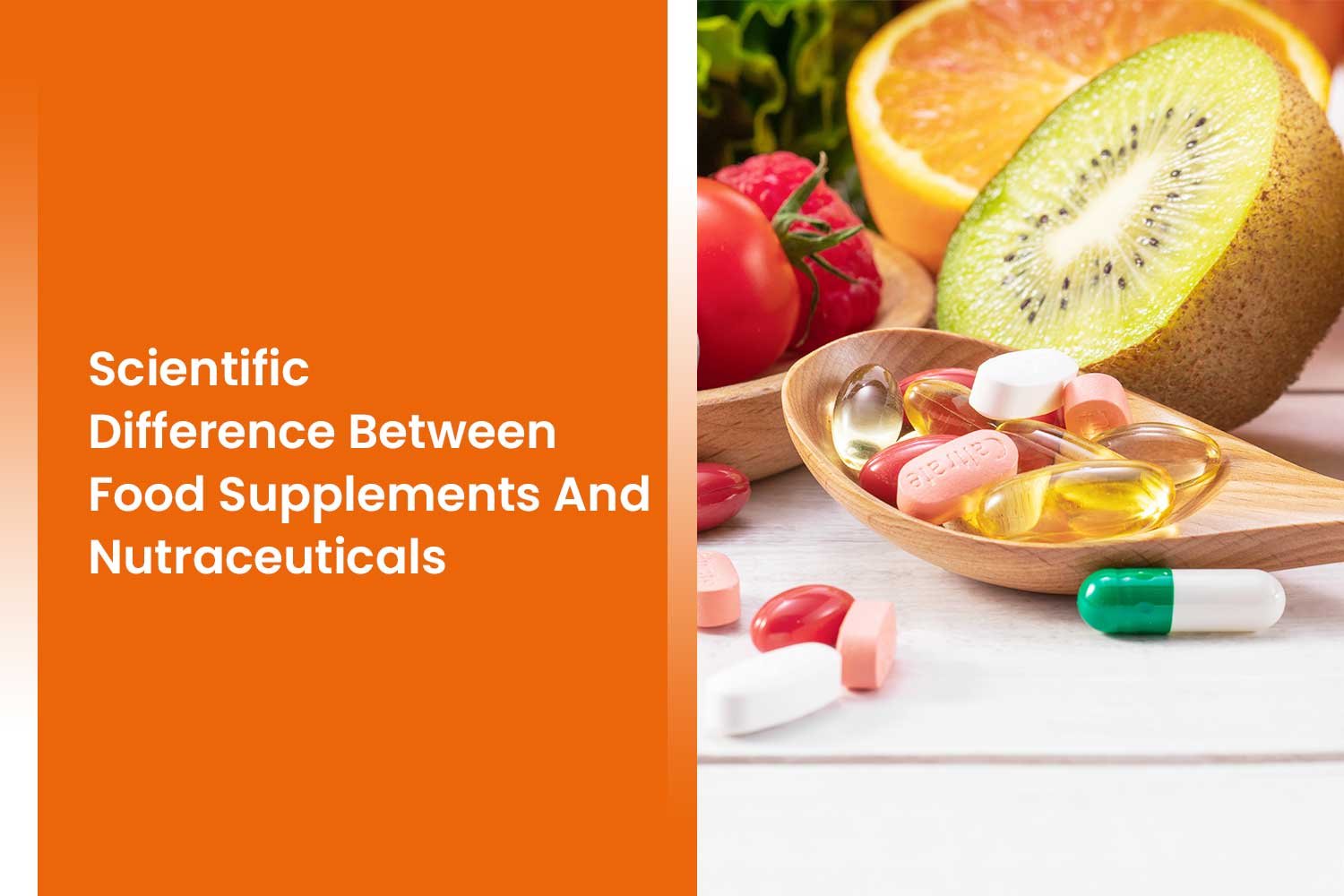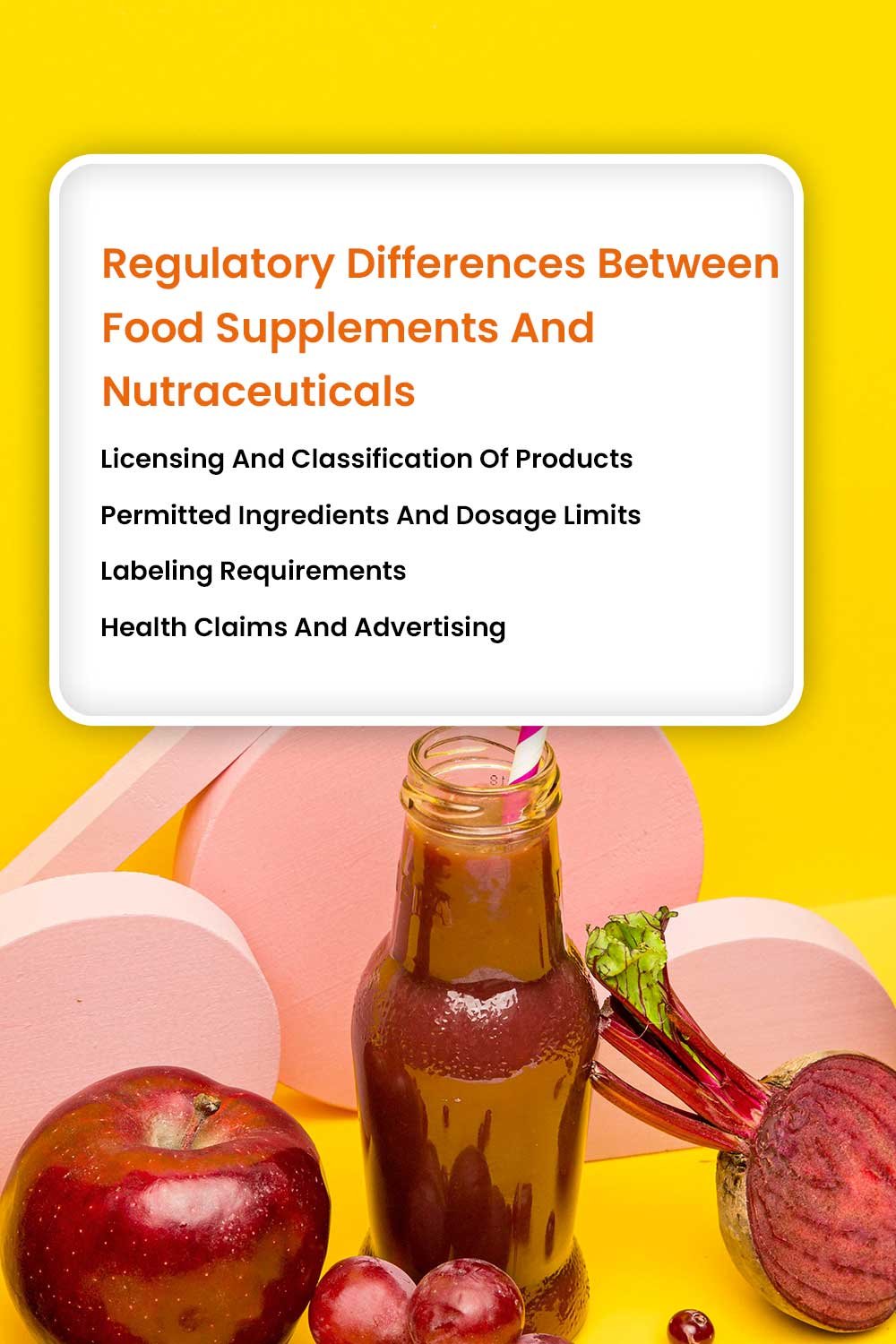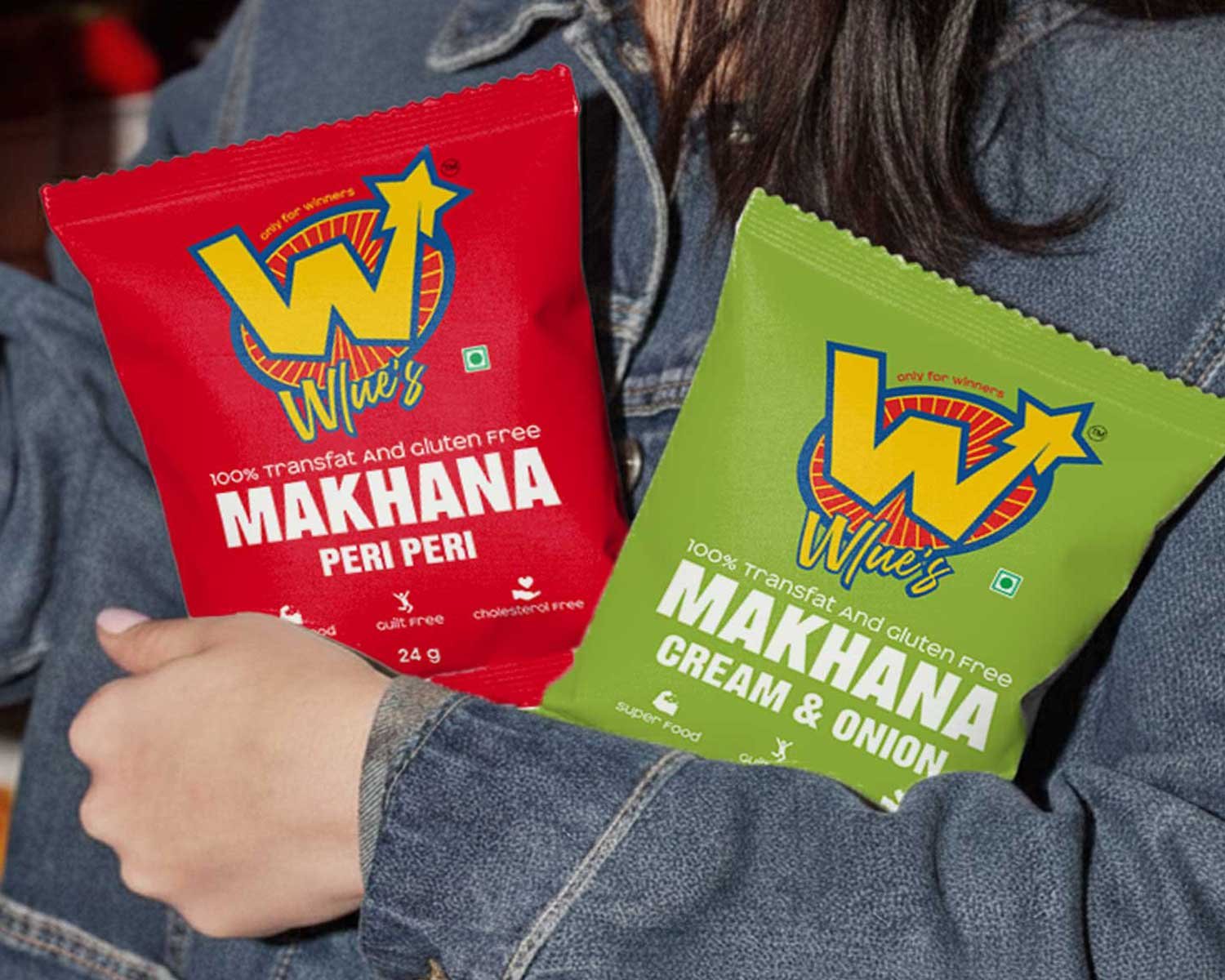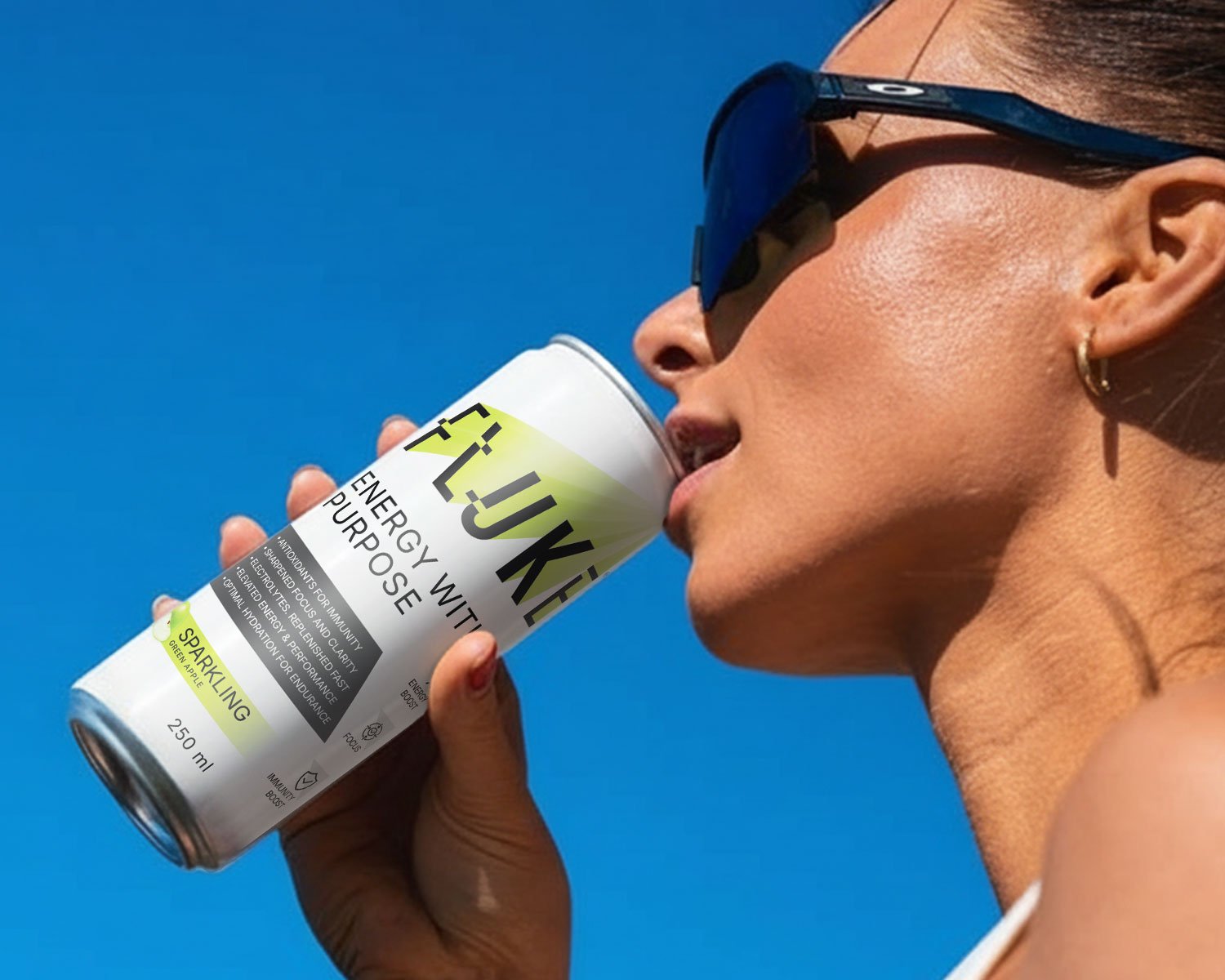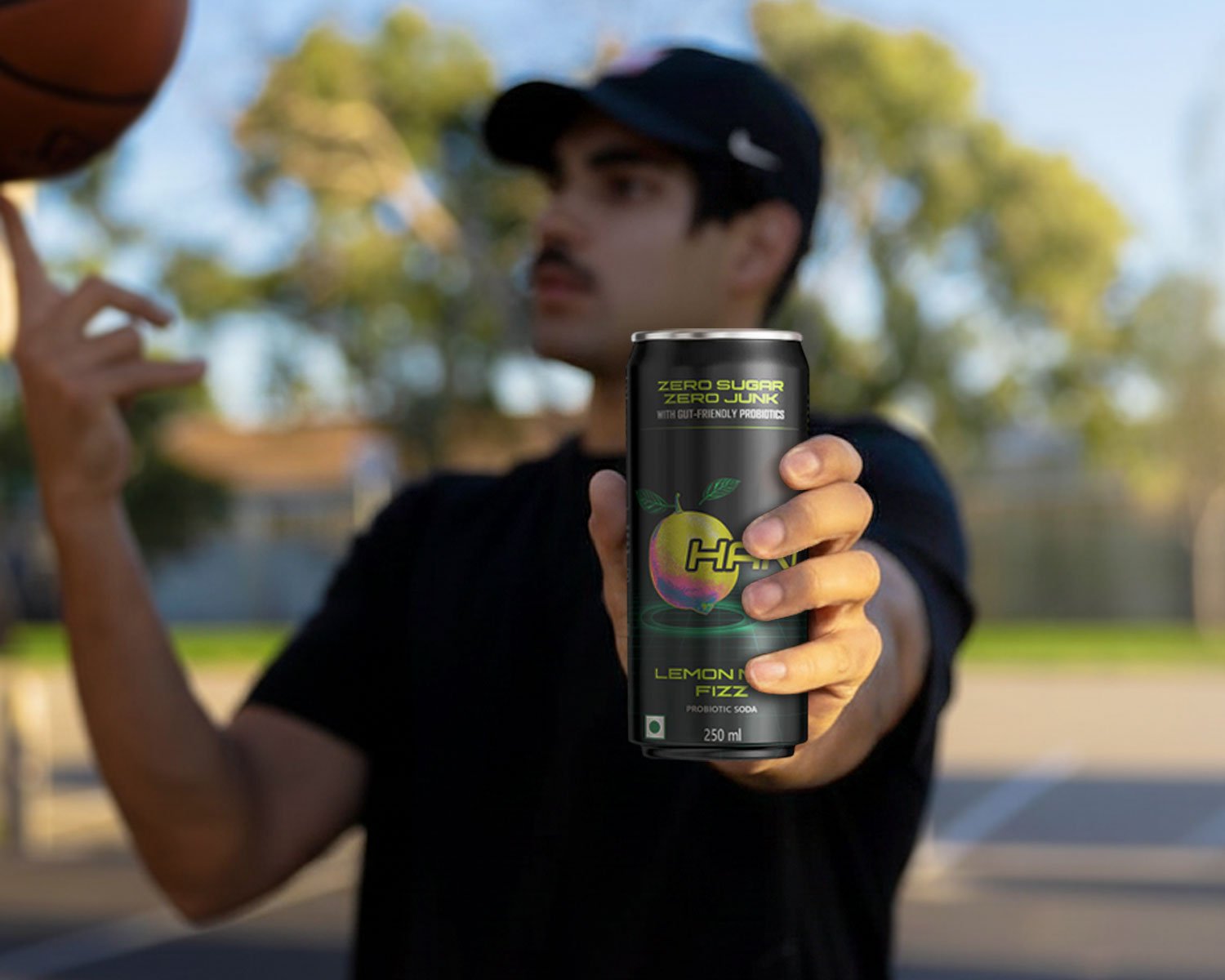Your turmeric capsule is not just ‘natural’, or your vitamin drink is not just ‘fortified’. In the eyes of regulatory bodies, it is either a food supplement or a nutraceutical, and getting the wrong label can fail your product before it reaches the shelves.
As brands develop new products in the health and wellness sector, one of the most common yet important challenges is understanding the difference between food supplements and nutraceuticals under the FSSAI law. The Food Safety and Standards Authority of India (FSSAI) has stated the clear definitions and rules for governing these categories. Missclassification of these can result in the delay of licensing, violations in labeling, or even product bans.
Through this blog, we have broken down the food supplements and nutraceuticals under the FSSAI Law, and how that one single decision can impact your formulation, licensing, marketing, and even your business.
Regulatory Framework Of FSSAI For Food Supplements And Nutraceuticals
According to FSSAI, food supplements and nutraceuticals both come under the Food Safety and Standards Regulations, 2016. These rules, along with the amendments and guidance documents issued up to 2025, provide the legal basis for product classification, food recipe formulation, labelling, and marketing.
FSSAI has categorized these products into multiple types that include Health Supplements, Nutraceuticals, Foods for Special Dietary Use (FSDU), and Food for Special Medical Purposes (FSMP). It is important to know that food supplements and nutraceuticals are at their peak in the Indian health and wellness sector.
What Are Food Supplements According To FSSAI?
FSSAI defines food supplements as health supplements because these products help to supplement a normal diet. These contain concentrated sources of nutrients or other substances that give a nutritional effect. Health supplements are made to support health in dietary gaps.
Common Health Supplements
- Vitamins
- Minerals
- Amino acids
- Essential fatty acids
- Proteins
- Plant-based extract
To be legally compliant, the ingredients in food supplements must fall within the Recommended Daily Allowance (RDA) limits defined by the Indian Council of Medical Research (ICMR) and must be listed in FSSAI’s approved ingredient schedules.
What Are Nutraceuticals According To FSSAI?
As per FSSAI, nutraceuticals are substances that may be extracted or purified from food but are made to provide physiological benefits more than basic nutrition. These products contain naturally extracted bioactive compounds like polyphenols, flavonoids, sterols, and antioxidants, and are used to support specific body functions or reduce disease risk.
Nutraceuticals include ingredients that need to be proven scientifically by preclinical or clinical studies. The compounds used must show measurable health effects, although they are not permitted to claim treatment or cure of diseases.
Examples Of Nutraceuticals
- Turmeric extract capsules containing curcumin (with anti-inflammatory properties)
- Lycopene tablets for cardiovascular support
- Green tea polyphenol supplements for antioxidant benefits
Nutraceutical recipe formulation experts who are using novel ingredients must need to submit safety data or evidence for approval. Nutraceuticals may exceed the standard RDA limits if scientific justification is available and approved by the FSSAI.
Scientific Difference Between Food Supplements And Nutraceuticals
The main scientific difference between food supplements and nutraceuticals is their recipe formulation.
Food supplements completely focus on nutrition. Their role is to maintain general health by supplementing important nutrients that can be missing from an individual’s regular diet. These products contain a single vitamin or a combination of vitamins, minerals, or amino acids. Their safety profile is properly made, and they are generally low-risk when formulated within RDA limits.
Nutraceuticals, whereas, completely focus on the functionality. These products are made to increase physiological functions at a cellular or biochemical level. Ingredients used in nutraceuticals have pharmacologically active properties. Their effectiveness is supported by scientific studies or clinical trials showing their role in reducing inflammation, improving gut health, supporting cognitive function, or increasing immunity.
While food supplements aim to prevent deficiencies, nutraceuticals are intended to optimize health or prevent disease risk, without making curative claims.
Regulatory Differences Between Food Supplements And Nutraceuticals
From a regulatory point of view, FSSAI applies special rules to these two categories. The difference between food supplements and nutraceuticals under the FSSAI law influences licensing, ingredient approval, food supplements and nutraceutical recipe formulation limits, labeling, and permissible claims.
Licensing And Classification Of Products
Health supplements are under the health supplement category, while nutraceuticals need a separate product category license. In the case of nutraceutical licensing under FSSAI using novel ingredients or making functional health claims, additional documentation like safety dossiers or scientific proofs is needed.
Permitted Ingredients And Dosage Limits
For food supplements, FSSAI mandates the use of ingredients listed in Schedules I to VI of the 2016 Nutraceutical Regulations. The dosage must not exceed the RDA limits prescribed by ICMR. Functional ingredients outside these lists need special approval.
Nutraceuticals have more flexible regulations regarding this. It allows ingredients that are not part of the scheduled lists, provided they have historical food use or safety validation. Dosage may also exceed RDA levels if it is proven scientifically and approved by the FSSAI.
Labeling Requirements
The food supplements and nutraceuticals under the FSSAI law must adhere to FSSAI labeling regulations. The front label must clearly declare the product type, such as “Health Supplement” or “Nutraceutical.” Additionally, labels must include dosage, usage instructions, warnings, and the statement: “NOT FOR MEDICINAL USE.”
Nutraceutical label requirements in India also need to mention the source of the bioactive ingredient (plant or animal origin), any functional claims supported by evidence, and a disclaimer that the product is not to treat or cure diseases.
Health Claims And Advertising
FSSAI refuses the misleading claims in both categories. Food supplements can only make general health claims such as “supports immunity” or “helps in bone development.” Nutraceuticals, however, can make specific functional claims like “helps reduce oxidative stress” or “supports liver function”, but only if it is proven by scientific studies.
Recent FSSAI Developments 2025 That You Should Know
FSSAI continues to strict its regulations to ensure the safety of the consumers. Key recent developments include:
- Introduction of QR codes for traceability on nutraceuticals priced above ₹1,000.
- Prohibition of pharma-like substances in food products.
- High-dose botanicals and novel food ingredients need submission of clinical data.
- Launch of a Front-of-Pack Nutrition Labeling (FOPNL) system for functional beverages and supplements.
Still Have Confusion With Classification? We’ll Help You Get It Right!
Not sure if your product is a food supplement or a nutraceutical? You’re not alone, and getting it wrong can result in delays, reformulation, or even rejection from FSSAI.
At Foodsure, we help you cut through the confusion. From choosing the right ingredients, setting the right dosage, to making sure your label says what it legally should, we guide you every step of the way.
Here’s how we help:
- Clear guidance on whether your product fits as a supplement or nutraceutical
- Advice on ingredient limits, RDA values, and what’s allowed
- Support with claims that won’t get rejected
- Full review of your nutraceuticals and food supplements recipe formulation, label, and documents before submission
Book a quick call with our expert team today. Send us your query on +91 8130404757
FAQs
1. How do I know if my product is a food supplement or a nutraceutical under FSSAI?
If your product fills dietary gaps (vitamins, minerals, proteins), it’s a food supplement. If it has bioactive compounds (curcumin, polyphenols) with proven functional benefits, it’s a nutraceutical.
2. Can nutraceuticals exceed RDA limits in India?
Yes — but only if there’s scientific evidence and FSSAI approval. Food supplements, however, must strictly stay within RDA limits set by ICMR.
3. What are the labeling rules for supplements vs nutraceuticals?
FSSAI requires the category name on the front label (“Health Supplement” or “Nutraceutical”), clear dosage, warnings, “Not for Medicinal Use,” and source of bioactive ingredients (for nutraceuticals).

